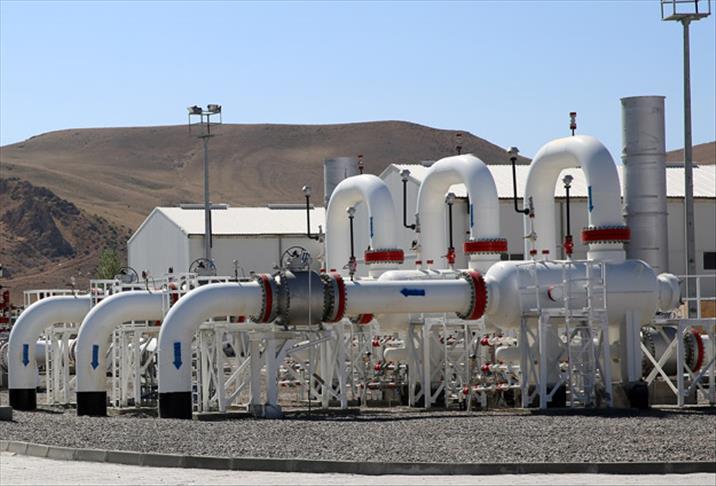US not to export gas to China even if restrictions removed
The U.S. may never export gas to China for geopolitical reasons, and would instead choose to strengten ties with Asia-Pacific countries through energy if the restrictions are removed, according to experts.

ANKARA (AA)
As pressure increases domestically and internationally for the U.S. to remove gas export restrictions, it remains a question which countries the U.S. would export to in the Asia-Pacific region.
The shale gas boom in the U.S. makes it produce more shale gas than it consumes domestically and private companies want to export the excess amount of gas overseas.
Some of the world's most energy-hungry economies are keen to import U.S. shale gas.
Most of these countries are close to the pacific side of the U.S. -China, India, Japan, South Korea, and Thailand- with a total gas consumption of almost 440 billion cubic meters in 2013, according to the BP Statistical Review of World Energy 2014.
China, with almost 5 percent of total gas consumption in the world alone, increased its gas consumption last year by 11 percent compared to 2012, the review said.
Yet, China may not be one of the markets to enjoy the U.S. gas exports even if the restrictions are removed.
"The Chinese do not consider the U.S. a reliable trade partner due to mutual distrust," said Ahmet Goncu, an associate professor at China's Xi’an Jiaotong-Liverpool University.
Most of the distrust stems from the U.S. military presence in Southeast Asia and Chinese military spending, human rights issues, and its alleged cyber-attacks on the U.S., while China is on its way to surpass the U.S. to become the world's largest economy by 2030, according to World Bank figures.
"Approval for LNG exports to China may be the most challenging as China is vying with the U.S. for regional influence in Southeast Asia," said Sijbren de Jong, an expert on energy security and natural resources at the Hague Centre for Strategic Studies, a think-tank based in the Netherlands.
"There is not enough political understanding between the two nations, and from a national security point of view there will be major political opposition to such an idea within the U.S. itself."
The U.S. tries to increase its influence in Southeast Asia in order to balance, and even contain, China's power. If the U.S. approves exporting gas, this may strengten its hand to contain China, by establishing energy relations with some of its allies.
"The U.S. is taking steps to press on China in Asia-Pacific," said Mehmet Yegin, the Head of Center for American Studies at the Ankara-based think-tank International Strategic Research Organization.
"The U.S. is trying to balance China on the region by establishing closer ties with Japan, India, Indonesia, Vietnam, and Australia," he added.
According to Goncu, the U.S. is leading the alliance with Japan, South Korea, and Philippines in Asia-Pacific against China.
by Ovunc Kutlu and Nihan Cabbaroglu
Anadolu Agency website contains only a portion of the news stories offered to subscribers in the AA News Broadcasting System (HAS), and in summarized form. Please contact us for subscription options.







